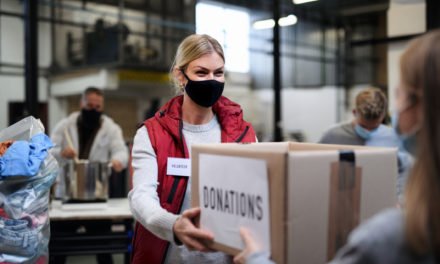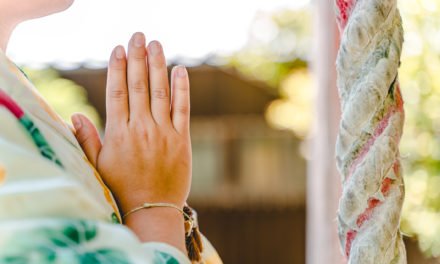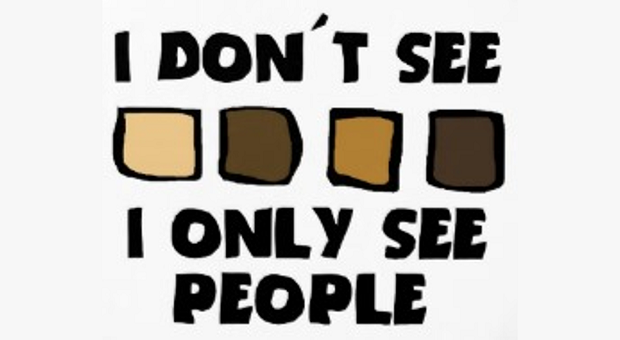“I watched Colin Kaepernick, and I thought it was terrible…. I will tell you, you cannot disrespect our country, our flag, our anthem — you cannot do that.”
“These are very good people, but they are angry. They want their lives back again, safely! See them, talk to them, make a deal.”
Both of these quotes were uttered by Donald Trump. The first was in response to Colin Kaepernick kneeling, unarmed, during the national anthem before his NFL games in protest of police killings of unarmed Black men. The second was in response to protestors at the Michigan state capitol armed with military-style rifles, protesting Coronavirus-related government restrictions (put in place to save lives). I find it ironic that Trump used the word “safely” for a group of men armed with guns. The second quote eerily reminds me of Trump’s response to the protestors at a white supremacist rally in Charlottesville, when he remarked that there were “very fine people on both sides.”
Juxtapose the scene at the Michigan state Capitol – a group of white men, armed with rifles screaming in the faces of cops, to the famous photo of a lone, unarmed, peaceful Black woman – Ieshia Evans – being detained by two cops in full riot gear during a protest in Baton Rouge. Congresswoman Alexandria Ocasio-Cortez recently tweeted about the stark contrast between the responses to the Michigan capitol protestors and activists who protest issues disproportionately affecting racial minorities (e.g. Black Lives Matter and Abolish ICE). The latter have been “debased, called rioters, and treated as a threat to society,” whereas those at the capitol were instead supported by the president and went unchallenged by law enforcement.
This is the hypocrisy of protest: How is it that peaceful protests by Black and Brown people are seen as a threat, whereas armed and rowdy protests by whites are something we applaud? I was recently watching an episode of HBO’s Watchmen, and one of the characters stated, “White men in masks are heroes, Black men in masks … they’re scary.” You can replace the words “in masks” to “with guns” …or remove the object reference altogether. Regardless, the statement would ring true in the America we live in…an America whose foundation is rooted in bias, racism and white privilege.
This is the hypocrisy of protest: How is it that peaceful protests by Black and Brown people are seen as a threat, whereas armed and rowdy protests by whites are something we applaud? Click To TweetWhite privilege refers to a set of benefits and advantages associated with one’s white identity, not shared by many people of color. It is important to note that white privilege is not correlated to one’s level of income or effort – in other words, it does not mean that white people do not struggle or don’t work hard. It is the “built-in advantage” due to the normalization of white culture. When it comes to protest, white privilege is when a white person with a gun charging a police officer is viewed as non-threatening, whereas a black person, unarmed, with a bag of skittles is perceived as a “thug” who needs to be taken down and apprehended. Unfortunately, this is America…and it has been the ways of America throughout history.
I would like to reimagine a new America. An America where Black people have the privilege of having a positive relationship with the police. Where Black parents do not have to have ‘the talk’ with their children. An America where, when I protest for my rights or against injustices, it is not called a ‘riot’. An America where one doesn’t lose their career over bringing to light police brutality. An America where more white people speak out against unfair treatment of people of color. An America where we can have Bold, Inclusive Conversations® about race, racism, bias and privilege. An America where white people are not afraid to acknowledge their whiteness and understand that it comes with a set of privileges and uses that in a way that benefits everyone. What’s your reimagined America?
I would like to reimagine a new America where Black people have the privilege of having a positive relationship with the police. Where Black parents do not have to have ‘the talk’ with their children. An America where, when I… Click To Tweet
Here are some tips from Teaching Tolerance on what white people can do once they recognize their white privilege and use it in a way that is favorable to all people.
Here are some tips from Teaching Tolerance on what white people can do once they recognize their white privilege and use it in a way that is favorable to all people. Click To Tweet- Don’t take it personally or use discomfort as an excuse to disengage. Feelings of guilt or defensiveness are common responses, but ultimately, they’re counterproductive. Rather than centering your own feelings of discomfort, center the feelings of people of color in evaluating what to do with this information. If your instinct is telling you it’s more comfortable to retreat or reassure yourself that you are not racist, think instead, “What actions can I take to help?”
- Learn when to listen, when to amplify and when to speak up. When people of color speak to their experiences of oppression, it’s important for white people not to dominate the conversation or question those experiences. You can use your privilege to amplify those voices. Share the work and perspectives of people of color on social media. Credit colleagues of color for ideas. This not only helps marginalized people reach that audience but also helps spread their message from the source, rather than through the lens of a white person.
That said, there are also times when white people should speak up. It’s not fair to burden people of color by making them always take the lead on anti-bias work or intervening when something offensive is said or done. If you hear racist remarks, speak up. If you see opportunities to educate fellow white people about race, do so. As an ally, your privilege can be a tool to reach people who may be more likely to listen to you or relate to your journey in understanding your own relationship to race and white privilege.
- Educate yourself. Just as you should not always expect people of color to take the lead on speaking out against racism, you also shouldn’t expect them to educate you on racism. While it’s OK to ask questions of those who have expressed a willingness to answer them, you have the power to educate yourself. Seek out books and articles on the topic written by people of color. Critically evaluate documentaries that surround topics like slavery, race, the U.S. prison system and more. We have more access to information created by people of color than ever before. Take advantage of it, and avoid burdening friends or coworkers of color with constant questions about their experiences.
- Educate fellow white people. Share what you’ve learned. Push through discomfort and demand courageous conversations in your circles. Do not let peers get away with problematic remarks without making a serious effort to engage them.
Risk your unearned benefits to benefit others. You have most likely seen a viral video featuring Joy DeGruy talking about her biracial sister-in-law using her white skin privilege to question why Joy was receiving undue scrutiny from a cashier. She risks her comfort and her easy transactions with the store to point out this unfairness and ultimately receives support from witnesses and management.
There are other ways to do this in our daily lives. It can be as simple as intervening if you see a boss or fellow educator treating someone differently because of their racial identity. It can mean advocating for a coworker to receive equal pay or opportunities. It can mean being an active witness when you see people of color confronted by law enforcement or harassed by bigots and letting them know you are there to support them and record the interaction if necessary. And it most certainly can mean engaging directly in anti-bias work, such as instilling more inclusive practices at your school or business or working with people committed to allyship and anti-racist activism, such as SURJ.




















